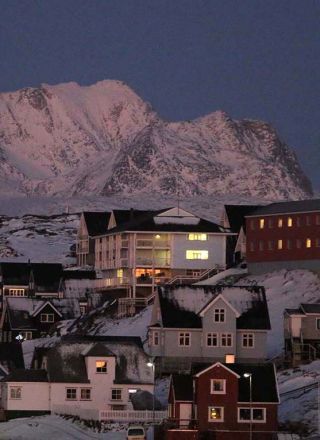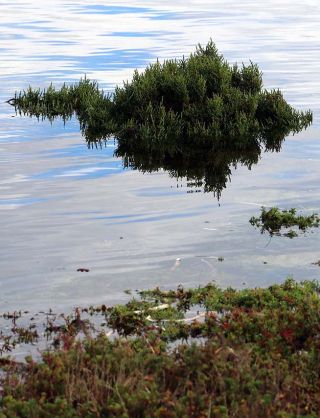Anger
Islandness of the Mind: The Study of Islanders
The science of islanders, island life, and islands.
Posted December 22, 2022 Reviewed by Lybi Ma
Key points
- How we view and experience islands contributes to understanding ourselves.
- Island thinking does not need to mean insular thinking.
- Understanding islanders, island life, and islands applies far beyond those contexts.
Islands are mysterious, romantic, dazzling, exquisite, paradisical, and inspiring. Or, at least, the myths claim this. Otherwise, they are isolated, tranquil, insular, marginalized, small, and remote. And, allegedly, islanders live in a laboratory to be studied as others.
Yet John Donne informed us in 1624, using the modern English version, “No man is an island entire of itself; every man is a piece of the continent, a part of the main.” Similarly, no island is a person entire of itself; every island is a piece of the world, a part of the main.
Every human being is an individual and is part of the collective of humanity. We function in isolation and we function in togetherness. Too much solitude or too much collectiveness impacts our mental health, making solitary confinement a punishment as much as groupthink and peer pressure.
Island studies as a research area explores the science of islanders, island life, and islands. They have contributed to current understandings of topics from species evolution to language evolution and from disease spread to human migration. Prominent profferings are also made to psychology: The mental health impact of living among a small populace and of being far from larger populations; the psychology of near-complete society-environment integration; and therapy through landscapes melding with waterscapes.
Depicting Island Psychology
From such knowledge, human psyches yield no shortage of island representations. Star-studded flicks sport island settings for healing and breakdowns, as in The Light Between Oceans and Shutter Island. In English fiction, The Island of Doctor Moreau and Lord of the Flies headline the horror island genre compared with Island and Islandia providing idyllic portrayals.
All the epithets in this post’s opening paragraph are represented in our popular imagination. And they apply to the characters’ mental states.
In movies, Hannibal Lecter in Silence of the Lambs is a horror island compared to Marta Cabrera in Knives Out as an island of pure good. In novels, Brave New World’s Alphas are lonely and isolated, so some happily accept the exile (ingress isle?) of an island, rather than distressing the rest of the population and themselves. Conversely, The City and the Stars uses a protagonist’s mental islanding within his own society to connect two communities and to better humanity.
Island ideas underpin many of our worldviews and expectations of heroes and antiheroes.
But What Is An Island?
As with all academic fields, debates rage on definitions: What is an island, what is islandness, who is an islander, and does it matter? Bitter disputes have even emerged on whether to refer to islands or small islands.
Examples of islandish characterizations and categories include the number of inhabitants, the land area (with or without tidal zones), the land plus water area or volume, economic metrics, and how much a landmass creates its own ecosystems or climates. At its simplest, an island is seen as land surrounded by water. It could then be most of the continent of Africa after the Suez Canal was cut. Before, the island might have been AfriEurAsia.
Then, there is land surrounded by substances other than water, such as hillocks poking above a sea of grass and volcanoes within a lava ocean on Jupiter’s moon Io. Or the Earth as an island of life drifting through outer space’s inhospitable vacuum.

Extremes and poetics aside, the modifier “small” has a large impact on our island mentality. Africa and AfriEurAsia, we feel, are too big to be islands. Antarctica, Australia, and Greenland are often excluded on a similar basis. Yet a rock or a tuft of reeds can be deemed too small to be an island. Island studies further examine presqu’îles; that is, almost islands such as peninsulas and isthmuses. Are Brazil and Albania linguistic islands on their respective continents?
The island definition remains ambiguous, subjective, malleable, and disputed, leading to varying statements of who is an islander and the traits ascribed to islands and their peoples. In any case, water surrounding land can be traversed by bridges, tunnels, and causeways as well as watercraft, aircraft, and wireless communications. Can an island lose its island status with improved connections? Can a place be islanded when these connections are severed?

Islands and Insularity
And so the assumed marginalisation, smallness, and isolation of islands births their allure and beauty. We sometimes desire to be as we envisage the island, and sometimes not. This state of mind is not contradictory.
At times, we prefer to be alone and at times we seek the company of friends and family or of strangers. Our moods and needs change; variety helps. Being isolated does not need to mean being lonesome or desolate. Being surrounded by water or immersed in our own thoughts does not mean marginal, unlinked, or distant.
Our psychology of islands representing our psychology of ourselves is negatively influenced in English by the word insular meaning island-like, narrow-minded, and detached. They are not the same. Island studies opens up these vistas, showing that island myths parallel the myths of what we think we should be. Islandness and non-islandness overlap and must be balanced in tandem for strength, rather than either being Donne’s “entire of itself."
References
Baldacchino, G. (ed.). 2018. The International Handbook of Island Studies: A World of Islands. Routledge, Abingdon, U.K.
Kelman, I. and G. Baldacchino (eds.). 2016. Routledge Major Works Series: Island Studies. Routledge, Abingdon, U.K.
Island Studies Journal. Started in 2006.
Journal of Marine and Island Cultures. Started in 2012.
Shima Journal. Started in 2007.




